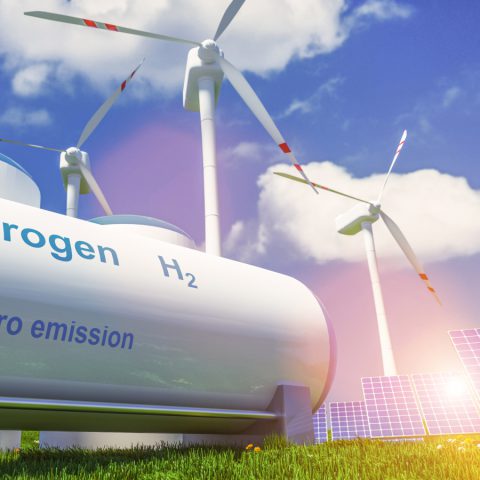Green hydrogen, the EU Commission clarifies the framework for truly renewable production
The EU Commission has proposed detailed rules to define what constitutes renewable hydrogen (green hydrogen) in the EU, with the adoption of two Delegated Acts required under the Renewable Energy Directive. The target is to ensure that all renewable fuels of non-biological origin (also known as RFNBOs) are produced from renewable electricity.

The EU Commission has proposed detailed rules to define what constitutes renewable hydrogen (green hydrogen) in the EU, with the adoption of two Delegated Acts required under the Renewable Energy Directive. The target is to ensure that all renewable fuels of non-biological origin (also known as RFNBOs) are produced from renewable electricity.
The first Delegated Act defines under which conditions hydrogen, hydrogen-based fuels or other energy carriers can be considered as an RFNBO. The Act clarifies the principle of “additionality” for hydrogen set out in the EU’s Renewable Energy Directive. Electrolysers to produce hydrogen will have to be connected to new renewable electricity production. This principle aims to ensure that the generation of renewable hydrogen incentivises an increase in the volume of renewable energy available to the grid compared to what exists already. In this way, hydrogen production will be supporting decarbonisation and complementing electrification efforts, while avoiding pressure on power generation.
The newly-proposed Acts on green hydrogen
On the other hand, the second Delegated Act provides a methodology for calculating life-cycle greenhouse gas emissions for RFNBOs. The methodology takes into account greenhouse gas emissions across the full lifecycle of the fuels, including upstream emissions, emissions associated with taking electricity from the grid, from processing, and those associated with transporting these fuels to the end-consumer. The methodology also clarifies how to calculate the greenhouse gas emissions of renewable hydrogen or its derivatives in case it is co-produced in a facility that produces fossil-based fuels.
According to Hydrogen Europe, the definition is key for determining compliance with the proposed targets in the Renewable Energy Directive, targets that would see industry and transport sectors progressively replace grey hydrogen with green hydrogen as well as creating new markets. The process “has been lengthy and bumpy, but the announcement is welcomed by the hydrogen sector, which has been eagerly waiting for the rules to be set so that companies can finalise investment decisions and business models”, wrote the international hydrogen organization.
Renewable hydrogen only from renewable plants
This new regulation mandates that renewable hydrogen be produced exclusively with additional renewable power plants, and that the hydrogen only be produced during the hours that the renewable energy asset is producing electricity (hourly temporal correlation), and only in the area where the renewable electricity asset is located (geographical correlation).
These strict rules can be met but will inevitably make green hydrogen projects more expensive and will limit its expansion potential, reducing the positive effects of economies of scale and affecting Europe’s capacity to achieve the goals set in REPowerEU. The role of governments will be crucial in supporting this sector and closing the price gap between renewable and conventional hydrogen.
Comments from Hydrogen Europe
“A far-from-perfect regulation is better than no regulation at all. At last, there is clarity for industry and investors and Europe can kick-start the renewable hydrogen market. This comes at a critical time, with the USA setting a very high benchmark with their Production Tax Credits, offered under the Inflation Reduction Act, attracting more and more investments towards their clean hydrogen market’’, commented Jorgo Chatzimarkakis, Hydrogen Europe CEO. “The European Commission will carry out a review process by 2028 on the introduction of hourly temporal correlation from 2030, and so could possibly avoid treating renewable hydrogen unequally to any other electricity-consuming sector”.
















